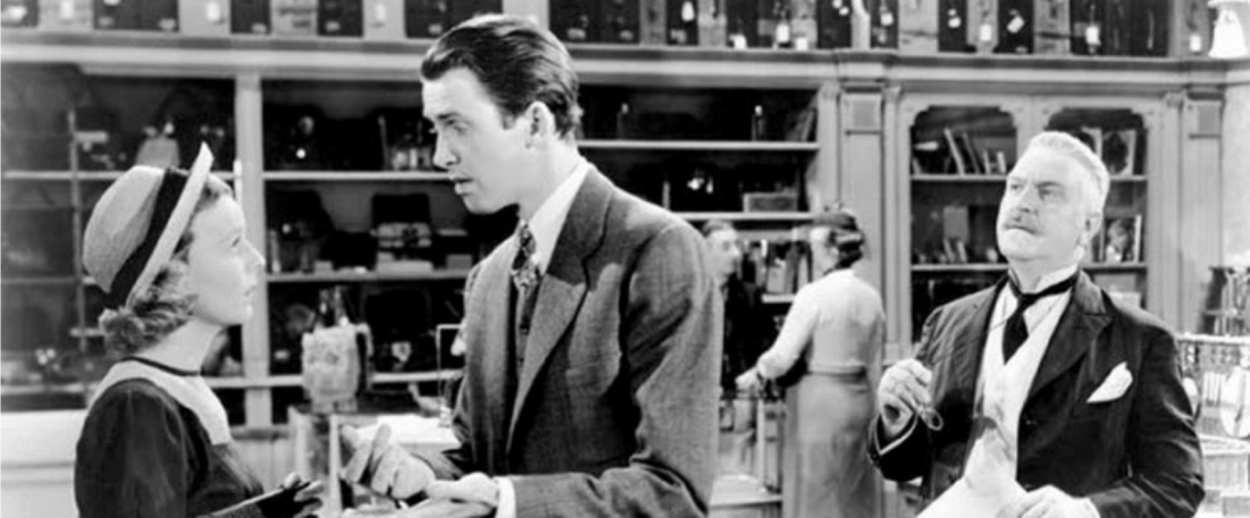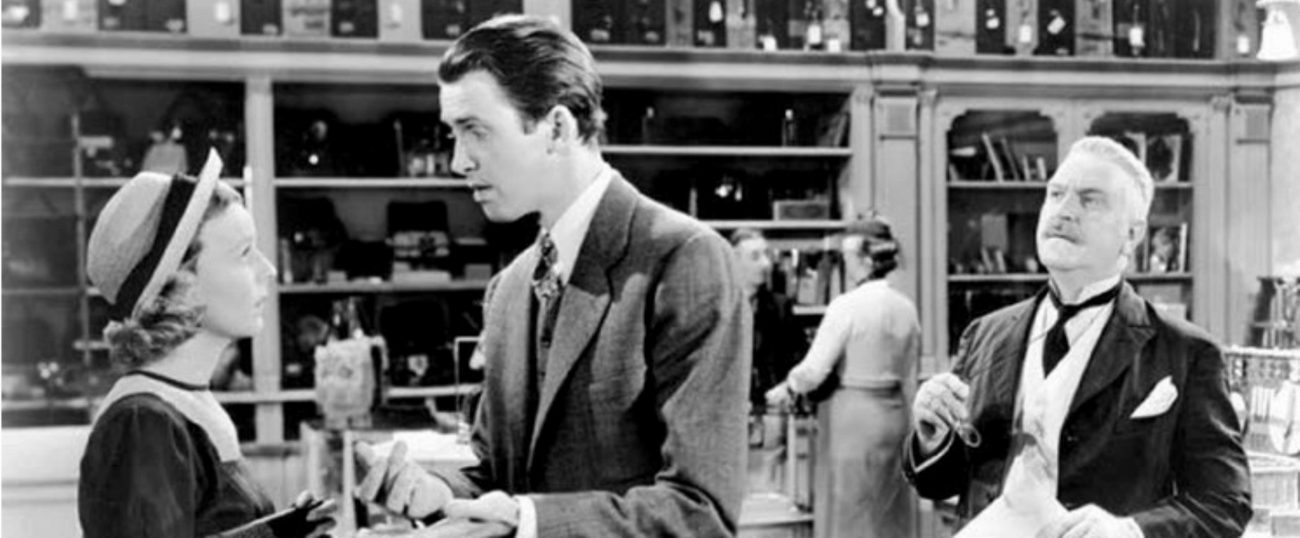The Eternal Themes in ‘The Shop Around the Corner’
The film that inspired ‘You’ve Got Mail’ is a study of human desire and yearning for transcendence that remains timeless




Of all the films with anachronistically modern values, none perhaps is greater than The Shop Around the Corner. Directed by Ernst Lubitsch and released in 1940, this film tells the story of a shop clerk (Jimmy Stewart) who works in a tiny Budapest department store. More than 50 years after its release the film would be remade as You’ve Got Mail. And although the mid-’90s adaptation no doubt has a place at the pinnacle of the rom-com form, it also declawed parts of the source material. Set at the birth of the email boom, Nora Ephron’s version tells the story of a world filled with promise; The Shop Around the Corner tells the story of two people who use letter writing as a final attempt at escapism in a world they feel is quickly passing them by. They use each other as a way to transcend their work at the shop.
The film opens as Stewart tells his coworker that he recently answered a personal ad in a newspaper from a woman looking for a sophisticated pen pal. Surrounded by cheap trinkets and the petty squabbles of his co-workers, Stewart pours his most intimate thoughts into the letters, which are then sent to an anonymous letterbox. They discuss literature and art, and the kinds of feelings that are all too easy to repress. Soon, Stewart and his pen pal develop an intense epistolary romance. Eventually, we learn that Stewart’s pen pal is his work nemesis—a reveal which I can only imagine, had it not been for You’ve Got Mail, would have felt more like an Aristotelian dramatic reversal rather than a cunning plot device.
Shot on the MGM lot in Los Angeles, the film brings to life an imaginary though somehow deeply familiar version of prewar Budapest. And yet, at times the setting could be mistaken for some remote New England town. It exists in a world that is as fictional and dream-infested as it is encumbered by the trivialities of day-to-day life.
It is, indeed, a film out of time. If it is easy to see modern values in this 1940s film, it’s because The Shop Around the Corner represents a complete inversion of the on-screen romances of the era.
The Shop Around the Corner is not a love story—love and romance only really enter the equation in the final minutes of the film. Instead, it is a story about two people looking for a way to fill a void within themselves. This film concretizes the specificity of our desires—something that is all too often left abstract or unexamined in films. We see some version of modern love between these characters, and also the pangs that accompany the dawning awareness that the right person may actually be the wrong person. They measure each other the same way we try to gauge whether or not we’ll like that friend of a friend we’ve heard about, or which profiles to click on. Hidden beneath the veil of characteristically 1940s Hollywood movie banter is a story about people not just as they were then, or as they are now, but as they have always been.
Alexander Aciman is a writer living in New York. His work has appeared in, among other publications, The New York Times, Vox, The Wall Street Journal, and The New Republic.